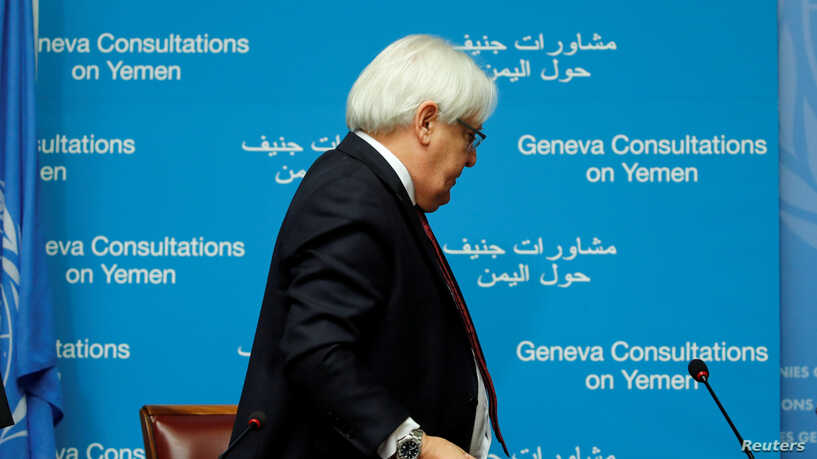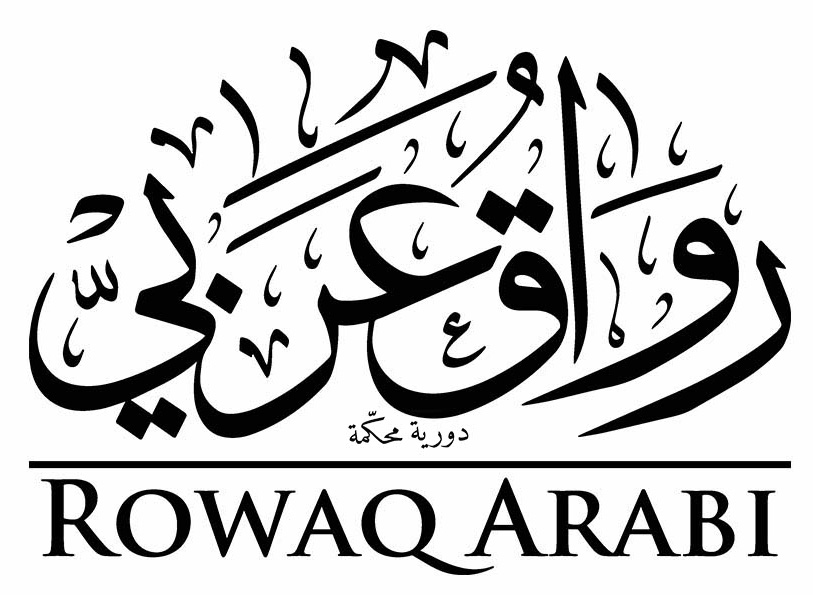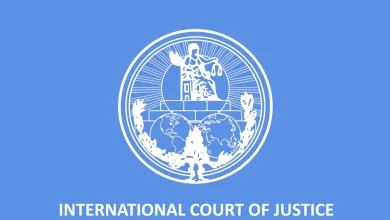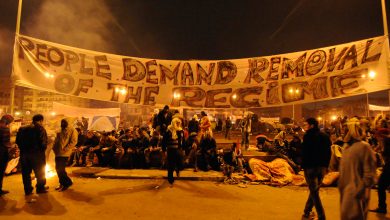Views: A Renewed Call for Indigenous-Led Conflict Resolution in the Arab States

Much has been said about the ‘local turn’ in peace-building, but the role of diaspora actors in driving conflict resolution efforts remains inadequately examined.[1] How do diaspora actors drive conflict resolution efforts, particularly in the Arab region, where armed conflict persists? This article presents a renewed call for ‘indigenous-led’ conflict resolution, especially following the surge in diaspora numbers with people fleeing war and authoritarian repression over the last decade.
It does so first by briefly discussing the problem of international policymakers who dismiss indigenous expertise, despite the importance of international support for many locally driven conflict resolution actors. This ‘support’ takes many forms, including financial, political, and more substantive partnership collaborations. Importantly, international support often also means the absence of international involvement, especially when it is not solicited by indigenous conflict resolution actors. Many have pointed to the importance of local actors as ‘agents for peace,’ while also cautioning against rhetorical calls for locally driven conflict resolution.[2]
That said, it is important to recognize that the binary categories of ‘international’ and ‘local’ can often be counterproductive, as they falsely imply that these two groups are homogenous. While a detailed description of the complexity of the ‘local’ and ‘international’ is beyond the scope of this article, the arguments presented herein recognize the diversity of these two categories.
Secondly, the article outlines the perils of ‘token’ engagement, whereby international and in particular Western governmental actors portray their involvement in armed conflict in the Arab states as a resolution-oriented, ‘bottom-up,’ approach, when the reality paints the opposite picture. This disingenuous engagement is as endemic among international policymakers’ interactions with diaspora actors as it is with so-called ‘study visit’ delegations to the Arab region.
Finally, the article draws attention to the potential value of universal jurisdiction efforts beyond criminal prosecution. It argues that, as a result of Syrian civil society collaboration with several European prosecutors, it has become increasingly difficult for the complicity of Western governments and multi-national corporations in the perpetration of armed conflict in the Arab region to go unnoticed. This is particularly important as it necessarily complicates the role of so-called international ‘peace-building’ actors and reinforces the need for a much more critical self-reflection on the part of diplomats, think-tank experts, and policymakers whose work focuses primarily on conflict resolution in the Arab states.
The continued collapse of several attempts to resolve armed conflict, such as in Yemen, Syria, or Libya, has resulted in a regional context that is plagued by what we can now identify as ‘protracted conflict.’[3] This necessitates a closer look at the actors involved not only in the fighting, but also in the indigenous attempts to put an end to the violence and to build peace. What is the role of indigenous actors within their home state and in the diaspora in attempts to resolve conflicts in their home state? How does the so-called international community work with and against indigenous peace-building actors? For the purposes of this article, ‘indigenous actors’ refers to those individuals who both come from and have a close connection to the concerned home state. They have a background that is firmly rooted in that state – whether it is family, social, ethnic, political, as well as continued close ties to that home state – whether they reside in it or outside of it. Most importantly, they possess ‘lived experiences’ in their home state.
Working with and against Indigenous Actors to Resolve Conflict
The ‘critical turn’ in the literature on peace-building challenges international policymakers to foreground ‘the local’, described as “everyday acts of a diversity of individuals and communities that go beyond elites and civil society normally associated with liberal peacebuilding.”[4] Such scholarship includes important critique of hollow international policymaking that suffers from a lack of legitimacy among the actors at which such peace-building efforts are aimed. In other words, internationally driven solutions often and perilously trump solutions that are indigenously driven – whether driven by indigenous actors acting in the diaspora, or by those who remain in their home country. Calls to afford a space for such ‘home-grown’ solutions at the negotiating table are far from new. But they are rarely put into practice at the international level, where much of the negotiation takes place. Moreover, superficial inclusion of such indigenous actors has often led to detrimental effects, further complicating and delaying any meaningful prospects to end armed conflict.
This is why opportunities for conflict resolution in several Arab states require an approach that prioritises policymaking that is informed by the existing knowledge, expertise and indeed the goals of those most affected by the armed conflicts. The international order is still heavily state-centric[5] in its approach to negotiating peace between governments and other armed groups. As a result, the role of transnational and indigenous individual non-state actors, including civil society, is often either underestimated, or gravely overlooked.[6]
International actors have largely failed in their attempts to support indigenous conflict resolution in the Arab States, particularly since the Arab uprisings in 2010/2011. The lived experiences of indigenous actors cannot and should not be replaced, or subsumed, by the so-called ‘expertise’ of external actors. Nor should indigenous actors[7] replace or altogether dismiss the expertise and support of foreign actors. International non-governmental organisations (NGOs), for instance, serve a vital supportive function “as risk absorbers and as accompanying actors who can enable local agency in a more sustained fashion.”[8] The engagement that takes place between these sets of actors, however, is often in the form of token encounters with little prospects for meaningful, sustainable impact.
The Perils of Token Engagement
Yemeni actors, for instance, will be excluded from meetings or panels that discuss how to resolve the conflict in Yemen. Instead, the participants constitute ‘experts’ on Yemen and on armed conflict in general, but oftentimes they do not have the lived experiences of their Yemeni counterparts. In many ways, the opportunities for conflict resolution have been staring these international actors in the face, be they in London, Washington DC, Rome, Paris, or Geneva. They include diaspora professionals who have tirelessly advocated and lobbied, researched and written, spoken publicly and privately, and served as crucial connectors between their home and host countries. They are former politicians, civil society leaders, human rights lawyers, judges, journalists, doctors, and educators.
Importantly, however, such indigenous actors, both in their home states and those in the diaspora, are physically accessible but not listened to. They often live and work in the same place, or near to, the international policymakers who attempt to address and support conflict resolution in the Arab region. Despite this proximity and accessibility of indigenous actors, they are often either forgotten or excluded from such conflict-resolution efforts. Furthermore, even when international policymakers engage with such indigenous actors, it is done in a superficial tokenizing manner that prioritizes the image of meaningful conflict resolution attempts, rather than attempts to resolve conflict in actuality.[9] A running theme in related interviews the author has conducted over the course of two years with Syrian and Yemeni professionals who work in the field of conflict resolution is that their policy recommendations are repeatedly ignored by international actors who claim to be in pursuit of resolving armed conflict in the various states of the Arab region.
Setting aside realpolitik and the securing of state interests at the expense of meaningful conflict resolution, this article is concerned with the international conflict resolution ‘industry,’ which has taken it upon itself to address conflict resolution in a myriad of ways. This industry includes individual engagements between European parliamentarians and human rights professionals from the Middle East and North Africa, meetings at the US Congress, other diplomatic engagements between domestic civil society representatives and international (read, ‘Western’) actors, conferences and the quiet convening of unofficial and semi-official dialogues, such as Track II diplomacy. With such a wealth of opportunities for meaningful engagement between international and indigenous actors, one has to ask: why is there a lack of such productive engagement? The answer lies in multiple factors, including the most basic, such as lack of innovative engagement strategies, and distraction of international policymakers by their own domestic politics and issues.[10] One key difficult factor, however, is the complicity of international actors in the perpetration of crimes and indeed in the prevention of meaningful conflict resolution in certain Arab states. Yemen and Libya offer useful examples to illustrate this point.
International Actors: Lack of Accountability for Complicity and Perpetration of Crimes
In addition to complicity in the exclusion of indigenous conflict resolution actors, another concern is the lack of accountability for the devastating role of powerful governments’ support (such as the U.S., France and U.K) to instability in the Middle East, despite their waving of the conflict-resolution flag. Political support to authoritarian regimes and billions of dollars’ worth of arms sales are not exactly helping the ‘stability’ of this region. When matched against its calls for peace, justice and stability in the Middle East, this Western governmental support to authoritarian regimes is of course not surprising at all and has long been the case.
In a recent report on Yemen, “Collective Failure, Collective Responsibility,” the United Nations describes the continued war-induced horrors that Yemenis face and notably calls out the U.S., U.K., France, and Iran for their complicity in what could amount to war crimes in Yemen.[11] And yet, only Iran continues to occupy the minds of concerned policymakers, more so than the ill-fated policies of their own governments and allies. While Iran is not exactly a global peacemaker, neither are some of the U.S., France, and the U.K.’s closest friends. Some diplomats protest that the US and its allies cannot be blamed for everything. While that is certainly true, it is also a deflection of responsibility to the region’s despots who thrive on continued support – and indifference – from Western governments.
A string of attempts to resolve the conflict in Libya took place in many cities, including Rome, Abu Dhabi, Paris, Tunis, Moscow, and Berlin. They have yet to yield positive results. However, the National Conference Process, which constituted a series of consultations with 7,000 Libyans across Libya in 2018, produced a report that outlines Libyan consensus on a number of policy areas aimed at rebuilding the country and promoting peace. The process kick-started by these consultations should not be shelved while armed conflict, perpetuated by international actors, rages in Libya.[12] It should also serve as an important framework for the negotiations that continue to take place in faraway cities. As Mezran and Fasanotti note in their review of international conferences on the Libyan conflict, “[I]t is necessary to remember that conferences cannot be held without those who actually have a role and a stake at the local level. A simple theorem, but evidently very difficult to put into practice.”[13]
Absence of Critical Self-Reflection among ‘Study Visit’ Delegations
As a fellow at a think tank, I am often on the receiving end of a variety of governmental and research delegations who eagerly state that they are on a ‘study visit’ to better understand the dynamics of conflict and political tensions in the region. It is fairly easy to criticize the likes of Iran, Israel and Saudi Arabia. However, it is not so easy to turn inward and castigate a long-standing European, American, Russian and other foreign actors’ policies of deadly exploitation and opportunism. The authors of such foreign policies have no qualms fanning the flames of death and destruction in the global south (with the support of their allies within the Global South), the Arab region included, so long as it benefits their economy and political interests. When these fundamental issues are raised in as diplomatic a manner as possible in such think tank meetings, an uncomfortable silence almost always follows.
Most worrying is these delegations’ claim that they are on a ‘study visit’, when in reality, many (but thankfully, not all) seek validation that the Arab region’s problems have more to do with an inherent inability of its people to ‘just talk to each other’ and less to do with the deadly complicity of their own governments in the perpetration of these heinous crimes and indeed, in the prevention of conflict resolution. That they claim to travel to the region for two, maybe three, days to understand ‘what is going on’ so that they can improve their policymaking in the region to advance peace, security, and justice is difficult to take seriously. This is because in many ways, part of the solution to easing the region’s turmoil simply lies in halting certain Western policies, such as arms sales to countries that use those arms to kill innocent civilians. Furthermore, nobody who claims to be an expert on the Middle East can claim ignorance of the extent to which Western powers are also responsible for the destruction of many parts of the region.
The panel of experts who delivered their 2019 report on Yemen rightly laments the ‘collective failure’ and ‘collective responsibility’ in putting an end to the war in Yemen and in seeking accountability.[14] And yet, there have been no official statements declaring an end to arms sales, particularly those from the West to a Saudi-led military coalition whose war tactics, alongside those of the Houthis, have created the world’s worst humanitarian crisis.[15]
Universal Jurisdiction: a Purpose beyond Criminal Prosecution?
Related to this issue of criminal accountability for Western actors’ involvement in armed conflict in the Middle East is the ongoing universal jurisdiction cases in Europe. One example is the LaFarge case.[16] LaFarge is a French multi-national cement company, whose subsidiary LaFarge Cement Syria had been operating in Syria throughout the war there. In 2018, French judges indicted LaFarge on charges of complicity in crimes against humanity, financing of a terrorist enterprise, and endangering people’s lives. This case opened following the filing of a criminal complaint in Nov 2016 by 11 former Syrian employees together with the European Centre for Constitutional and Human Rights (ECCHR) and its French partner organisation, Sherpa.
LaFarge was accused of forcing its employees to continue to work in unsafe conditions between 2012 and 2014, thereby endangering their employees’ lives just to keep the factory open and running in north-eastern Syria. LaFarge was also accused of being an accomplice in crimes against humanity because it financed ISIS in a number of ways. It is believed that LaFarge purchased oil and other commodities from ISIS, that it paid fees to ISIS to obtain passes for mobility, and that it may have also sold ISIS cement.[17] This is regarded as empowering ISIS to commit massive atrocities in Syria. The investigation into LaFarge so far has revealed that it may have paid up to 13 million Euros to various armed groups in order to keep its factory running in Syria. So far, eight LaFarge executives, including two CEOs have been charged.[18]
Of note, is a statement that a high-level executive of LaFarge made during one of the hearings. Before his indictment, Christian Herrault, former Lafarge Deputy Director-General of Operations, said of the 2013-14 developments: “One needs to see that Daesh [IS] had still not done anything outside of Syria, there had been no Charlie, no Bataclan… It was then a Syrian affair.”[19] This was a poor and dishonest attempt to deflect responsibility by pointing out that the crimes involved were limited to within Syrian territory and did not impact France. It is a logic that prevails in similar cases, such as that of BNP Paribas in Sudan and many others.[20] In the absence of conflict resolution efforts that take into fuller account the complicity of international actors in the perpetration of armed conflict, such universal jurisdiction efforts, at the very least, provide an avenue through which the historical record of such complicity can be protected.
Conclusion
By breaking down this small but important segment of the theatre of conflict resolution, the lack of indigenous-led policymaking comes as no surprise. It requires an honest and difficult reckoning with a broader set of powerful actors whose complicity in the perpetration of armed conflict in the Arab region is one that they would rather ignore as it calls for critical self-reflection rather than placing the blame entirely on Global South actors. Moreover, meaningful engagement with indigenous actors whether they are in Aden or Rome, Idlib or Vienna, Benghazi or Paris, is not only a conflict resolution effort. It is a peace-building effort because it is indigenous actors who have a long-term interest in resolving conflict. It is their lived experiences that should drive the formulation of meaningful conflict-resolution and peace-building policies and approaches at the domestic and international level. As mentioned earlier, this is not a novel idea whatsoever. However, it is rarely put into practice for the reasons discussed above. As such, the recommendations of this paper can be summarized as follows:
Take indigenous expertise seriously. Affording a greater leadership role for indigenous expertise to figure into policymaking is therefore of utmost importance if international actors claim to be genuine in their conflict resolution objectives. This requires an innovative effort to include those actors whose mobility is restricted: for example, a Yemeni tribal authority figure with a long history of effective community conflict resolution would not necessarily be traipsing around European cities to explain how to resolve the conflict in his governorate or the broader country. Nor would this authority figure necessarily even want to be doing that. But affording such actors a leadership role, with the support of international actors – be they NGOs that focus on conflict resolution, the United Nations Special Envoy offices, the EU, and other foreign governments – is a basic yet fundamental requirement not only for conflict resolution, but also for peace-building. It requires conflict resolution venues and platforms that are not restricted to hotels in big European or American cities. While there is a lot of armed conflict, civil wars, and now regional wars, there is also a history of conflict resolution in Yemen, in Libya, in Syria and other countries where armed conflict currently prevails. That conflict resolution history is marked by individuals and groups indigenous to those towns, governorates, and countries.
Translate expertise. Oftentimes, indigenous expertise either gets lost in translation, or is not translated at all. The burden of addressing the so-called ‘language barrier’ should be borne by all of the actors involved in the conflict resolution exercise, and not only by indigenous actors. For the purposes of the Arab region, existing efforts by organizations (such as CIHRS, the Brookings Doha Center, and others) that make resources available in both English and Arabic must continue to be supported as they would significantly enhance the content of conflict resolution policies while also expanding the scope of who can participate in conflict resolution efforts.
Pursue universal jurisdiction as a means to protect historical narrative. The complaints filed against Western multi-national companies, such as the LaFarge case in Syria as well as the more recent BNP Paribas case concerning Sudan, draw attention to the culpability and complicity of Western actors in the perpetration of crimes against humanity. Such efforts must continue and must be supported as they constitute an important form of awareness while casting a wider net of accountability that implicates not only indigenous actors, but their international co-conspirators as well. In other words, the material generated by such universal jurisdiction cases presents a more accurate narrative and historical account of who the culpable actors are. This is significant, as it illustrates not only the transnational character of the perpetration of armed conflict in the Arab region, but that avenues for conflict resolution and accountability are also found across borders.
[1] Paffenholz, Thania (2015) ‘Unpacking the Local Turn in Peacebuilding: A Critical Assessment Towards an Agenda for Future Research,’ Third World Quarterly 36 (5) pp. 857-874; Leonardsson, Hanna and Gustav Rudd (2015) ‘The ‘Local Turn’ in Peacebuilding: A Literature Review of Effective and Emancipatory Local Peacebuilding,’ Third World Quarterly 36 (5) pp. 825-839. On the role of diasporas in conflict and post-conflict reconstruction, see Koinova, Maria (2018) ‘Diaspora Mobilizations for Conflict and Postconflict Reconstruction: Contextual and Comparative Dimensions,’ Journal of Ethnic and Migration Studies 44 (8).
[2] Ibid, p.857.
[3] Colaresi, Michael and William R. Thompson (2002) ‘Strategic Rivalries, Protracted Conflict, and Crisis Escalation,’ Journal of Peace Research 39 (3) pp. 263-287. See also Coleman, Peter T. (2003) ‘Characteristics of Protracted, Intractable Conflict: Toward the Development of a Metaframework–I.’, Peace and Conflict: Journal of Peace Psychology 9 (1), pp. 1-37.
[4] Leonardsson, Hanna and Gustav Rudd (2015) ‘The ‘Local Turn’ in Peacebuilding: A Literature Review of Effective and Emancipatory Local Peacebuilding,’ Third World Quarterly 36 (5), p.833.
[5] Mac Ginty, Roger and Oliver P. Richmond (2013) ‘The Local Turn in Peace Building: A Critical Agenda for Peace’, Third World Quarterly, on how while state-centric approaches have ‘eroded’ over the last two decades, their necessity remains key to many policymakers and researchers. See also de Coning, Cedric; Karlsrud, John and Paul Troost (2015) ‘Towards More People-Centric Peace Operations: From ‘Extension of State Authority’ to ‘Strengthening Inclusive State-Society Relations,’ Stability: International Journal of Security & Development 4 (1): 49 pp. 1-13.
[6] Aboueldahab, Noha (2019) ‘Reclaiming Yemen: The Role of the Yemeni Professional Diaspora,’ Brookings Doha Center, 28 April, https://www.brookings.edu/research/reclaiming-yemen-the-role-of-the-yemeni-professional-diaspora/ on the perils of the lack of meaningful engagement with such indigenous actors; see also Aboueldahab, Noha (2018) ‘Writing Atrocities: Syrian Civil society and Transitional Justice’ Brookings Doha Center, 7 May, https://www.brookings.edu/research/writing-atrocities-syrian-civil-society-and-transitional-justice/ on the accomplishments of such indigenous actors both within and outside their home states. See also Malet and Anderson (2017): ‘The concept of complex transnationalism’—defined as “The increasing number, scope, interactions, and influence of transnational actors on diplomatic and governance processes where states have invited as participants, been forced to respond to, or have become reliant upon the expertise of transnational actors and where transnational actors increasingly interact directly with each other—more accurately reflects the mechanisms of world politics in the realm of war and peacemaking than does a state-centric model of international relations.” (Malet & Andersen, p. 216).
[7] Be they civil society, politicians and former politicians, diplomats, academics, artists, journalists, human rights professionals, lawyers and other professionals.
[8] Lilja, Jannie and Kristine Höglund (2018) ‘The Role of the External in Local Peacebuilding: Enabling Action—Managing Risk,’ Global Governance: A Review of Multilateralism and International Organizations 24 (3) p. 412.
[9] Aboueldahab, Noha (2019) Reclaiming Yemen.
[10] Brexit is a case in point here. In meetings with the author, parliamentarians noted that they have not been able to devote as much time and effort to conflict resolution in the Middle East because of their preoccupation with Brexit politics.
[11] Human Rights Council (2019) ‘Yemen: Collective Failure, Collective Responsibility’ 3 September, https://www.ohchr.org/EN/HRBodies/HRC/YemenGEE/Pages/Index.aspx
[12] Aboueldahab, Noha (2020) ‘Why Peace Initiatives in Libya are Failing. And What Can Be Done About It?’ Al Jazeera English, 22 January, https://www.aljazeera.com/indepth/opinion/peace-initiatives-libya-failing-200122111825330.html.
[13] Mezran, Karim and Federica Saini Fasanotti (2019) ‘Another Conference, Another Incomplete Solution for Libya,’ Atlantic Council, 21 November, https://www.atlanticcouncil.org/blogs/menasource/another-conference-another-incomplete-solution-for-libya-2/.
[14] Human Rights Council (2019) ‘Yemen: Collective Failure, Collective Responsibility – UN Expert Report’ Press release, Group of International and Eminent Experts on Yemen, 3 September, https://www.ohchr.org/EN/HRBodies/HRC/Pages/NewsDetail.aspx?NewsID=24937&LangID=E
[15] UN News (2019) ‘Humanitarian crisis in Yemen remains the worst in the world, warns UN’, 14 February, https://news.un.org/en/story/2019/02/1032811
[16] Another such example is the BNP Paribas case, which involves attempts to hold the French bank criminally accountable for its financial support to Sudan’s authoritarian government of ousted president Omar Al Bashir.
[17] European Center for Constitutional and Human Rights (2018) ‘Lafarge in Syria, accusations of complicity in grave human rights violations,’ 28 June, https://www.ecchr.eu/en/case/lafarge-in-syria-accusations-of-complicity-in-grave-human-rights-violations/
[18] ibid.
[19] ibid.
[20] Stempel, Jonathan (2019) ‘BNP Paribas to face revived lawsuit over Sudanese genocide: U.S. appeals court,’ Reuters, 22 May, https://www.reuters.com/article/us-bnp-paribas-sudan-lawsuit/bnp-paribas-to-face-revived-lawsuit-over-sudanese-genocide-u-s-appeals-court-idUSKCN1SS20D.
Read this post in: العربية





